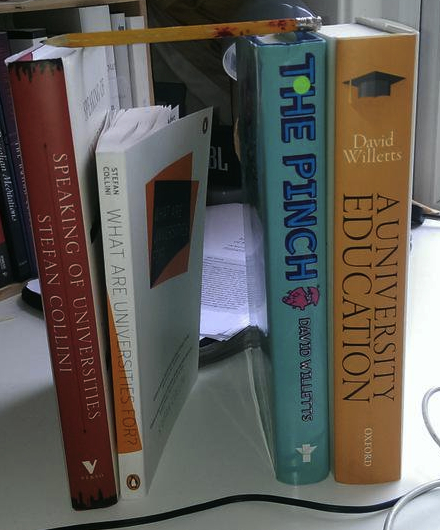One of the things I most often hear when talking to people about climate change is “but what to do?” This, in and of itself, is good news. Perhaps owing to evidently extreme weather patterns1, perhaps owing to the concentrated efforts of primary/secondary school teachers2, perhaps owing to unceasing (though increasingly brutally repressed, even in the UK & the rest of Europe) efforts of activists, it seems the question whether climate change is ‘real’ has finally taken the back seat to “and what shall we do about it?”.
While climate denialism may have had its day, challenges now come from its cousins (or descendants) in the form of climate optimism, technosolutionism, or – as Linsey McGoey and I have recently argued – the specific kind of ignorance associated with liberal fatalism: using indeterminacy to delay action until certain actions are foreclosed. In the latter context in particular, the sometimes overwhelming question “what to do” can compound and justify, even if unintentionally, the absence of action. The problem is that whilst we are deliberating what to do, certain kinds of action become less possible or more costly, thus limiting the likelihood we will be able to implement them in the future. This is the paradox of inaction.
My interest in this question came from researching the complex relationship between knowledge (and ignorance) and (collective or individual) action. Most commonsense theories assume a relatively linear link between the two: knowing about something will lead you to act on it, especially in the contexts of future risk or harm. This kind of approach shaped information campaigns, or struggles to listen to ‘the science’, from early conversations around climate change to Covid-19. Another kind of approach overrides these information- or education-based incentives in favour of behavioural ‘nudges’; awareness of cognitive processing biases (well-documented and plenty) suggested slightly altering decisional infrastructure would be more efficient than trying to, effectively, persuade people to do the right thing. While I can see sense in both approaches, I became interested instead in the ambiguous role of knowledge. In other words, under what conditions would knowing (about the future) prevent us from acting (on the future)?
There are plenty of examples to choose from: from the critique of neoliberalism to Covid-19 (see also the above) to, indeed, climate change (free version here). In the context of teaching, this question often comes up when students begin to realize the complexity of global economy, and the inextricability of questions of personal agency from what we perceive as systemic change. In other words, they begin to realize that the state of the world cannot be reduced either to individual responsibility nor to the supposedly impersonal forces of “economy”, “politics”, “power” etc. But this rightly leaves them at an impasse; if change is not only about individual agency nor about large-scale system change, how can we make anything happen?
It is true that awareness of complexity can often lead to bewilderment or, at worst, inaction. After all, in view of such extraordinary entanglement of factors – individual, cultural, economic, social, political, geological, physical, biological – it can be difficult to even know how to tackle one without unpicking all others. Higher education doesn’t help with this: most people (not all, but most) are, sadly, trained to see the world from the perspective of one discipline or field of study3, which can rightly make processes that span those fields appear impossible to grasp. Global heating is one such process; it is, at the same time, geological, meteorological, ecological, social, political, medical, economic, etc. As Timothy Morton has argued, climate change is a ‘hyperobject’; it exceeds the regular boundaries of human conceptualization.
Luckily, social theory, and in particular social ontology, is particularly good at analysing objects. Gender – e.g. the notion of ‘woman’ – is an example of such an object. This does not mean, by the way, that ‘deconstructing’ objects, concepts, or notions needs to reduce from the complexity of their interrelation; in some approaches to social ontology, a whole is always more than the sum (or any deducible interrelation) of its parts. In other words, to ‘deconstruct’ climate change is not in any way to deny its effects or the usefulness of the concept; it is to understand how different elements – which we conventionally, and historically, but not-at-all necessarily, associate with disciplines or ‘domains’ – interact and interrelate, and what that means. Differently put, the way disciplines construct climate change as an object (or assemblage) tells us something about the way we are likely to perceive solutions (or ways of addressing it, more broadly). It does not determine what is going to happen, but it points to the venues (and limitations) humans are likely to see in doing something about it.
Why does this matter? Our horizon of agency is limited by what we perceive as subjects, objects, and forms of agency. In less weighty parlance, what (and whom) we perceive as being able to do stuff; and the kind of stuff it (they) can do. This, also, includes what we perceive as limitations on doing stuff, real or not. Two limitations apply to all human beings; time and energy. In other words, doing stuff takes time. It also consumes energy. This has implications for what we perceive as the stuff we can do. So what can we do?
As with so many other things, there are two answers. One is obvious: do anything and everything you can, and do it urgently. Anything other than nothing. (Yes, even recycling, in the sense in which it’s better than not recycling, though obviously less useful than not buying packaging in the first place).
The second answer is also obvious, but perhaps less frequent. Simply, what you aim to do depends on what you aim to achieve. Aiming to feel a bit better? Recycle, put a poster up, maybe plant a tree (or just some bee-friendly plants). Make a bit of a difference to your carbon emissions? Leave the car at home (at least some of the time!), stop buying stuff in packaging, cut on flying, eliminate food waste (yes, this is fact very easy to do). Make a real change? Vote on climate policy; pressure your MP; insulate your home (if you have one); talk to others. Join a group, or participate in any kind of collective action. The list goes on; there are other forms of action that go beyond this. They should not be ranked, not in terms of moral rectitude, nor in terms of efficiency (if you’re thinking of the old ‘limitations of individual agency’ argument, do consider what would happen if everyone *did* stop driving and no, that does not mean ambulance vehicles).
The problem with agency is that our ideas of what we can do are often shaped by what we have been trained, raised, and expected to do. Social spaces, in this sense, also become polygons for action. You can learn to do something by being in a space where you are expected to do (that) something; equally, you learn not to do things by being told, explicitly or implicitly, that it is not the done thing. Institutions of higher education are really bad at fostering certain kinds of action, while rewarding others. What is rewarded is (usually) individual performance. This performance is frequently framed, explicitly or implicitly, as competition: against your peers (in relation to whom you are graded) or colleagues (with whom you are compared when it comes to pay, or promotion); against other institutions (for REF scores, or numbers of international students); against everyone in your field (for grants, or permanent jobs). Even instances of team spirit or collaboration are more likely to be rewarded or recognized when they lead to such outcomes (getting a grant, or supporting someone in achieving individual success).
This poses significant limitations for how most people think about agency, whether in the context of professional identities or beyond (I’ve written before about limits to, and my own reluctance towards, affiliation with any kind of professional let alone disciplinary identity). Agency fostered in most contemporary capitalist contexts is either consumption- or competition-oriented (or both, of course, as in conspicuous consumption). Alternatively, it can also be expressive, in the sense in which it can stimulate feelings of identity or belonging, but it bears remembering these do not in and of themselves translate into action. Absent from these is the kind of agency I, for want of a better term, call world-building: the ability to imagine, create, organize and sustain environments that do more than just support the well-being and survival of one and one’s immediate in-group, regardless how narrowly or broadly we may define it, from nuclear family to humanity itself.
The lack of this capacity is starkly evident in classrooms. Not long ago, I asked one of the groups I teach for an example of a social or political issue they were interested in or would support despite the fact it had no direct or personal bearing on their lives. None could (yes, the war on Gaza was already happening). This is not to say that students do not care about issues beyond their immediate scope of interest, or that they are politically disenchanted: there are plenty of examples to the contrary. But it is to suggest that (1), we are really bad at connecting their concerns to broader social and political processes, especially when it comes to issues on which everyone in the global North is relatively privileged (and climate change is one such issue, compared to effects it is likely to have on places with less resilient infrastructure); and (2), institutions are persistently and systematically (and, one might add, intentionally) failing at teaching how to turn this into action. In other words: many people are fully capable of imagining another world is possible. They just don’t know how to build it.
As I was writing this, I found a quote in Leanne Betasamosake Simpson’s (excellent) As We Have Always Done: Indigenous Freedom Through Radical Resistance that I think captures this brilliantly:
Western education does not produce in us the kinds of effects we like to think it does when we say things like ‘education is the new buffalo’. We learn how to type and how to write. We learn how to think within the confines of Western thought. We learn how to pass tests and get jobs within the city of capitalism. If we’re lucky and we fall into the right programs, we might learn to think critically about colonialism. But postsecondary education provides few useful skill sets to those of us who want to fundamentally change the relationship between the Canadian state and Indigenous peoples, because that requires a sustained, collective, strategic long-term movement, a movement the Canadian state has a vested interest in preventing, destroying, and dividing.
(loc 273/795)
It may be evident that generations that have observed us do little but destroy the world will exhibit an absence of capacity (or will) to build one. Here, too, change starts ‘at home’, by which I mean in the classroom. Are we – deliberately or not – reinforcing the message that performance matters? That to ‘do well’ means to fit, even exceed, the demands of capitalist productivity? That this is how the world is, and the best we can do is ‘just get on with it’?
The main challenge for those of us (still) working in higher education, I think, is how to foster and stimulate world-building capacities in every element of our practice. This, make no mistake, is much more difficult than what usually passes for ‘decolonizing’ (though even that is apparently sometimes too much for white colonial institutions), or inserting sessions, talks, or workshops about the climate crisis. It requires resistance to reproducing the relationship to the world that created and sustains the climate crisis – competition-oriented, extractive, and expropriative. It calls for a refusal to conform to the idea that knowledge should, in the end, serve the needs of (a) labour market, ‘economy’, or the state. It requires us to imagine a world beyond such terms. And then teach students how to build it.
- Hi, philosophy of science/general philosophy/general bro! Are you looking to
explainmansplain stochastic phenomena to me? Please bear in mind that this is a blog post, and thus oriented towards general audience, and that I have engaged with this problem on a slightly different level of complexity elsewhere (and yes, I am well aware of the literature). Here, read up. ↩︎ - One of the recent classes I taught that engaged with the question of denialism/strategic ignorance (in addition to a session on sociology of ignorance in Social Theory and Politics of Knowledge, an undergraduate module I taught at Durham in 21-23, and sessions on public engagement, expertise and authority, and environmental sociology in Public Sociology: Theory and Practice, which is a core MSc module at Durham, I teach a number of guest lectures on the relationship between knowledge and ignorance, scientific advice, etc.) was a pleasant surprise insofar as most students were well aware of the scale, scope, and reality of climate change. This is a pronounced change from some of my experiences in the preceding decade, when the likelihood of encountering at least the occasional climate skeptic, if not outright denialist (even if by the virtue of qualifying for the addressee of fn 1 above), was high(er). When asked, most of the students told me they learned about climate change in geography at school. Geography teachers, I salute you. ↩︎
- The separation of sociology and politics in most UK degree programmes, for instance, continues to baffle me. ↩︎























![One more time with [structures of] feeling: anxiety, labour, and social critique in/of the neoliberal academia](https://janabacevic.files.wordpress.com/2016/08/906736_10151382284833302_1277162293_o.jpg?w=924&h=0&crop=1)




